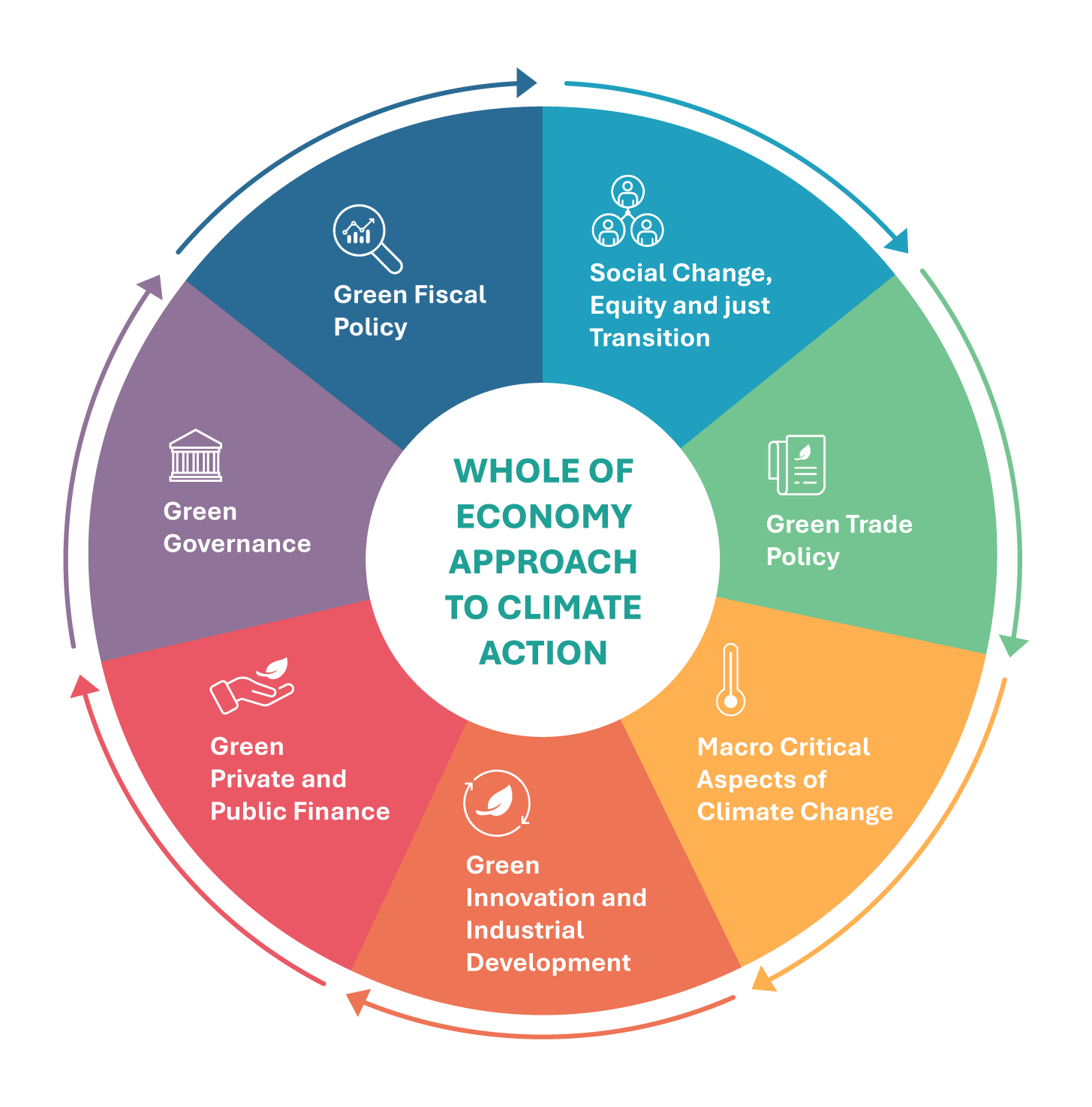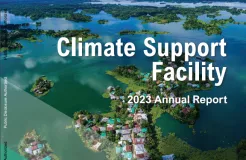Climate change has traditionally been addressed in a bottom-up, project-based way, through sectors such as energy, transport, and agriculture. However, climate change is not confined to these sectors alone, but increasingly involves more expansive macroeconomic areas such as fiscal policy, the financial sector, industrial policy, trade, and private sector development, while ensuring a just transition.
The Whole of Economy Program is dedicated to undertaking transformational and cross-sectoral changes that create an enabling environment for countries to deliver on their nationally determined contributions (NDCs) and long-term strategies (LTSs). The program recognizes not just the urgency but also the scale required for impactful and credible climate action. It fulfills its objectives through two primary methods:
- Strengthens the analytical basis and diagnostics to support effective policy advice on issues relating to a whole-of-economy approach to climate change.
- Improves the capacity of client countries to design and implement climate considerations into their macroeconomic, fiscal, financial, trade and private-sector development policies.

Infographic: Whole of Economy Approach to Climate Action


